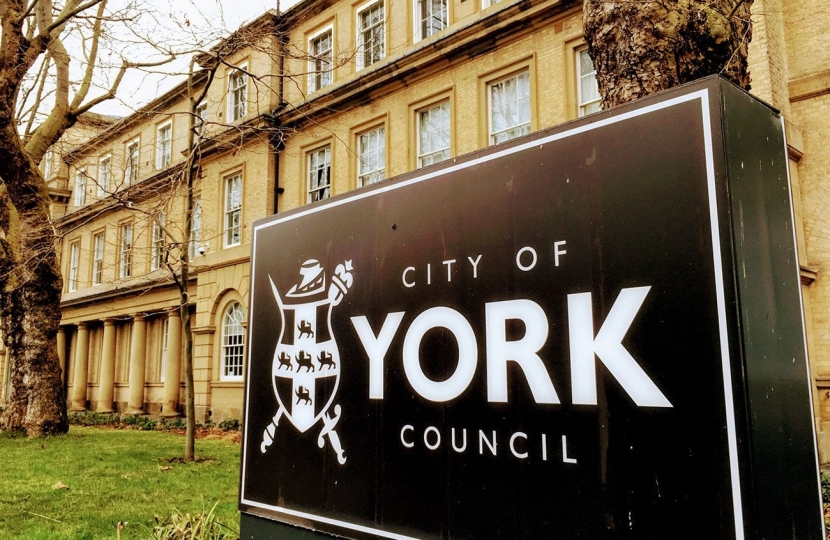
City of York Conservative Group has criticised the refusal of York’s Lib Dem group to sensibly consider options in the devolution process. This follows an unprecedented statement from City of York Council this morning (27th August) which dismissed the possibility of even considering changes to York’s local government boundaries. The statement is unprecedented because it is clearly the political view of the Lib Dems and its leader Cllr Aspden but is written as from the council in the way that only nonpolitically controversial issues should be – for example announcements about Covid or a Planning Enquiry.
The government has been clear that local government changes may well form part of the devolution settlement, with devolution being vital to unlock funding and help level up the north. This will see a number of councils change and the Minister Simon Clarke has said a unitary authority should be about 400,000 people. York currently has a population of 200,000 and North Yorkshire 600,000 and yet of all York’s councillors it is only York’s Conservatives that are prepared to even look at a change to York.
Conservative Group Leader Paul Doughty said ‘Today’s statement by the council is an abuse of process and is clearly political. The statement claims without any evidence that a change to council boundaries would be detrimental to businesses and residents and would increase council tax. This dismissal of even looking at change is being done by the Lib Dem council for one reason – that the current boundaries are evidently the best likely to be imagined for them as a political party.
York has seen various boundary reorganisations over the years and we should always look at how things can be improved. It is clear to any observer that City of York Council has failed in many areas over the years whether the Local Plan, the Elderly Persons Accommodation programme, many areas of transport policy, the recent £400,000 Chief Executive pay-off or the lack of value for money for council tax. Different boundaries would give the chance for a better run, with economies of scale, a more efficient council and better services in particular in areas like adult social care and education. It is crucial we at least look at the possible options, rather than just keep the situation as is to look after certain people’s self interest.’



